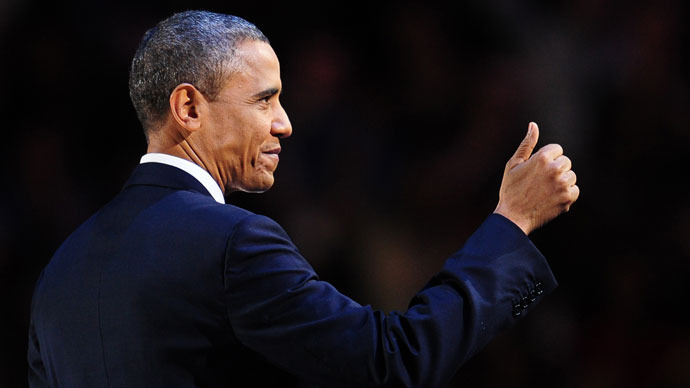Moscow and Washington: It takes two to tango

President Obama will stay in the White House for another four years. The latest news from Washington, already ...
President Obama will stay in the White House for another four
years. The latest news from Washington, already welcomed by Prime
Minister Medvedev, will make most of Moscow’s political pundits
sigh with relief. With all the present perils of US-Russian
relations, a Cold War scenario has been taken off the table, at
least for the time being.
Republican presidential hopeful Mitt Romney’s harsh pre-election statements – one of them bluntly labeling Russia as America’s “number-one geopolitical foe” – will soon be forgotten. Most of us today can hardly recall all the anti-Russian jabs and hiccups of the 2008 US presidential campaign, at that time coming from Republican presidential candidate John McCain along with arrogant anti-Russian remarks from Sarah Palin.
With the dust settling on the 2012 US presidential race, it is high time to focus on the future, not the past. In this respect, it is particularly interesting to watch how the US election is interpreted and reported in different parts of the world. The flurry of comment, which flooded international and Russian media after Barack Obama won his second term, tells of two basic things: The domestic political priorities in the country, and their expectations for future relations with the United States (if any).
The devil, as always, is in details. In a striking contrast to
the 2008 US Presidential election, keenly watched by a vast Russian
audience, the 2012 Obama-Romney battle for the White House held
little interest for most Russians.
Why, you may ask? The reason is that four years after Barack
Obama’s meteoric rise to power, which initially evoked high
expectations and was met with an outburst of enthusiasm worldwide,
including Russia, now there is little to celebrate and to believe
in for most of us here, on the banks of Moscow-river.
Though their rhetoric on Russia turned out to be quite different, in practical terms neither Romney nor Obama were seen by Russians as potential American leaders on which to pin hopes of renewed US-Russian ties. Yes, the hawkish and impolite Romney labeled Russia as America’s main geopolitical adversary. But Obama, though somewhat polite and avoiding his challenger’s harsh rhetoric, launched a much-touted ‘reset’ policy with Moscow that ultimately lost steam.
There were differences in style, but not substance, between Obama and Romney. The major bottlenecks – Iran, Syria, disagreements on US anti-ballistic missile systems in Europe, renewed lecturing on Russian democracy over the notorious Magnitsky case – poisoned and crippled the reset ahead of time, all taking place under the Obama administration.
There is growing evidence that Russian President Vladimir Putin is turning away from the US and looking eastwards as part of his new Asia-Pacific doctrine and Eurasian project. As a result, US-Russian relations are left to discussions among a high caste of diplomats, as well as a handful of Russian political pundits splitting hairs over whether a bad partner in the White House is better for Russian interests than no partner at all.
Moscow and Washington now seem like an old married couple: Weary, bored and disillusioned, too tired for either a stormy divorce or for a new honeymoon.
The good news is that the ship of US-Russian relations will not sink, as Russia is too powerful to be ignored by any US administration, even one that’s virulently anti-Russian. The bad news, however, is that the ship will likely be grounded for another four years. It will stay in the dry dock, hardly fit to venture out for deep-sea sailing.
Can this disturbing tendency be reversed? While chances for a ‘reset’ rebranding look pretty slim, the window of opportunity has not yet closed. While thinking of the future, Moscow and Washington must stop pointing fingers and sticking to a ‘You break it, you fix it’ approach. Instead, they have to find enough courage to say ‘We break it, we fix it,’ loud and clear and in one voice.
It is high time to remember that it takes two to tango.
The statements, views and opinions expressed in this column are solely those of the author and do not necessarily represent those of RT.
The statements, views and opinions expressed in this column are solely those of the author and do not necessarily represent those of RT.













